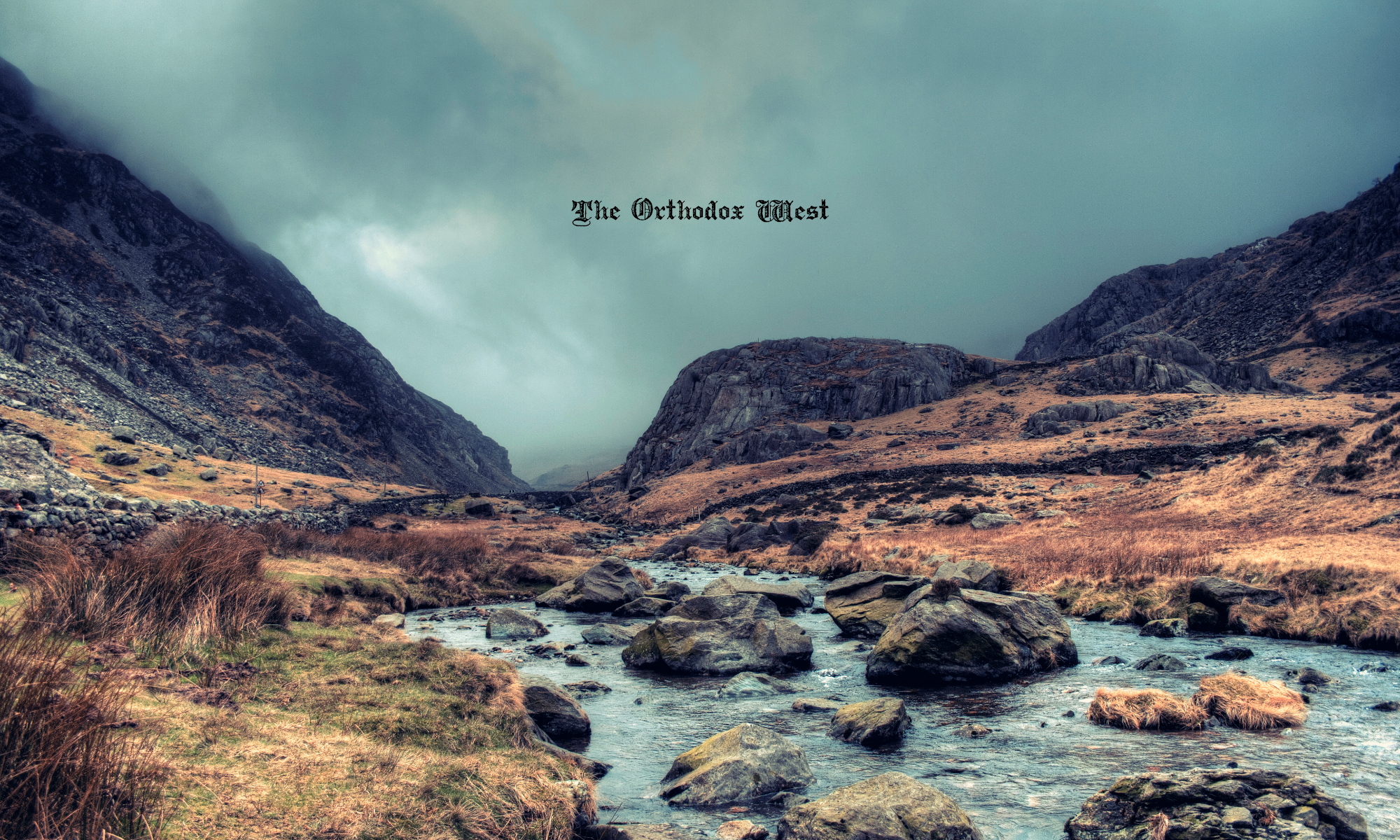We began our existence as humans in Paradise with a commandment from God. It was a simple commandment which involved a fast. Thou shalt not eat of the fruit of this tree. The man and woman who had been created in the image of the Word and Son of God, were intended to gain their knowledge through obedience and a simple ascetical commandment.
God had made humanity with the express purpose of seeing them mature into the fullness of the stature of the Archetype in Whose image they had been made. From the beginning He had the intention of bridging the chasm between uncreated and created to allow for perfect communion with Himself, the Source of Life and Love, a chasm only bridgeable from His uncreated side. He created all things with the purpose of uniting them to Himself through His Son, with us as the priests of creation, uniting it in ourselves & offering it to God, as we are made like unto the Son.
The perfect union of created and uncreated, of human and divine, what we call the hypostatic union in the words of the Council of Chalcedon, would be accomplished through the Incarnation of the Word and Son of God. All humanity in a very real sense was a preparation for Our Lady, Mary the ever-Virgin Mother of God. Everything up to that point led to her, as the one in whose womb the Son would take flesh and assume our human nature to unite it to divinity in Himself, the seed of the woman promised in Genesis 3:15.
The ultimate purpose was the creation of a new humanity, united to this deified human nature of Christ through holy Baptism, and then fed with the Body and Blood of the One Who made it all possible. The divine food and drink of new and unending life for all who express their faith and loyalty to the One True God.
We have been granted the grace to know Him as the both the Son and the Lord of David, Son of Man and Son of God, as the Pharisees could not. They could not receive the truth of One Who joined in Himself the human and the divine. In Him the commandments are both fulfilled and summed up: Our command is to love God with heart, soul, and mind, and our neighbor as ourselves. Obviously God is not in need of our love. We aren’t commanded to love Him for His sake, but for ours.
His love reaches out to all His creation that it might be summed up, ordered and gathered up in His love, in Christ Himself Who is the Alpha and Omega of all things. He is the beginning and the end of all God’s purposes for creation, and we have been made part of His Body as adopted sons and daughters. We are joined to that new humanity which was wrought in Him, the New Adam, with Him as the Head, to advance the Kingdom of God. Sadly, a great part of humanity wants no part of God’s plan. They worship other gods, but mostly just themselves.
They think they are autonomous, self-sufficient. They believe that we are beings unto ourselves, that it is “all about us” that we really have no need to be concerned or connected to anyone else, including God. We see it in all sorts of modern phenomena.
Men and women are no longer even choosing to give themselves to the most elemental level of loving neighbor, of taking a spouse and entering into that most excellent crucible for the realization of self-sacrifice and love. But, for most, that is because they have rejected God and His grace and purpose for life anyway.
When the lawyer asks in St. Luke’s account, “who is my neighbor?” our Lord’s parable of the good Samaritan tells him that everyone is my neighbor. Each who has been formed in the image of the Archetype is a neighbor and a potential brother or sister in Christ. How we treat them, how we love them, will effect in great measure whether they too become part of the Body of Christ and of the Kingdom of God.
Ours is a glorious vocation: to mature into the stature of the fullness of Christ, in whose image we are made. To pass from glory to glory in the eternal process of salvation. To be manifested as the sons of God, which St. Paul says is the earnest expectation of all creation.
It is all about being formed in love. To die to ourselves and live both for God and for our neighbor. It is hard work, but it is the direction of our transformation – to begin with ourselves and our salvation, but never to make that the end. Our own salvation is not the highest aim. The humility of love is to think of the world. Only when pride subjects itself to humility can it be redeemed. We were created for the purpose of unifying this world and the world to come – the here and now with the Kingdom of God, as a priesthood of believers in the One who perfectly united them in Himself.
We contribute to this unity by faithful living, in relation to God and in relation to the world in which we have been set, at the place on which we stand with our neighbor. As God sought to come to His world through humanity in the Incarnation, so He continues to come into His world through us. This is the mystery of our existence. He dwells wherever we let Him in. As our Master was, so are we to be – a dwelling for the Divine Presence; temples of the Living God, who will one day reign with Him over the new heavens and the new earth.

